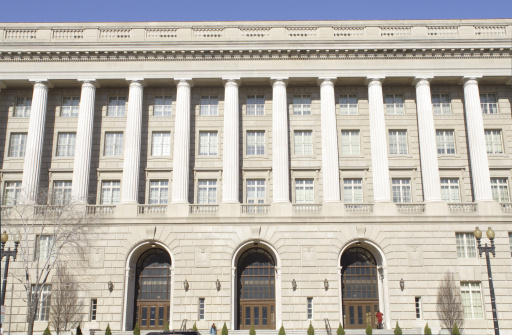
The GAO recommends the IRS improve oversight of tax-exempt charitable organizations.
Recently, the Internal Revenue Service (IRS) was embroiled in scandal amid allegations that it improperly relied on political motivations to evaluate some organizations’ applications for tax-exemption. As part of a lengthy investigation into the controversy, a concerned Congress asked the U.S. Government Accountability Office (GAO) to study the effectiveness of the IRS’s oversight of tax-exempt charitable organizations. In response, the GAO recently produced a new report detailing the IRS’s current oversight efforts and identifying a number of shortcomings.
To address these failings, the GAO issued several recommendations for the IRS to improve its oversight of charitable organizations. The recommendations urge the IRS to set goals and establish performance measures to track charitable organizations’ compliance, and to inform state charity regulators better that they may use certain IRS taxpayer data in state enforcement efforts. The GAO also advised Congress to consider certain legislative measures to enable better oversight of tax-exempt charitable groups.
Charitable organizations provide a range of crucial services in the United States, from cancer research to housing assistance to environmental protection. These groups improve millions of lives, and because of their benefit to society many receive tax-exempt status from the. Being exempt from paying taxes allows these organizations to devote more of their budgets to helpful programs.
However, tax-exempt status can be abused. The government needs to ensure that tax-exempt charitable organizations, also known as 501(c)(3) organizations, continue to provide the services that justify their special tax status. Oversight reduces the risk that charitable organizations will behave fraudulently, undermining trust in charitable groups broadly and even causing a decrease in charitable donations.
The Exempt Organizations (EO) division of the IRS is responsible for monitoring tax-exempt charitable organizations. The EO performs this oversight by reviewing applications for groups seeking tax-exempt status and auditing organizations that have been granted tax-exempt status already. Significant recent cuts to the IRS’s budget, however, have caused the EO to shrink, leaving fewer resources and employees to keep track of more than one million tax-exempt charitable organizations. As a result, in 2013, the IRS audited just 0.71% of charitable organizations, roughly half the audit rate for corporate entities.
In addition to the EO’s perhaps overly lean staffing, the GAO’s report points to several other factors hindering the effective oversight of charitable organizations. Among these is the EO’s lack of data on charitable organizations’ compliance with the requirements of tax-exempt status. Without these data, the EO cannot measure current compliance levels, and thus it is unable to set goals or assess progress toward increasing compliance.
Statutory restrictions pose another obstacle, hampering the IRS’s ability to communicate information with state charity regulators, who also oversee charitable organizations. While legislation in the past decade increased the types of tax information that can be shared with state regulators, the new law also imposed harsh penalties for state officials that fail to implement stringent safeguards for handling sensitive taxpayer data. Thus, state officials’ uncertainty about how to comply with the statutory protections, coupled with insufficient state resources to meet the strict requirements, limited their ability to make use of much of the IRS’s data on tax-exempt charitable organizations.
Additionally, relatively few tax-exempt charitable organizations file their taxes electronically. Only 38% did in 2013. Electronic filing, or “e-filing,” cuts down on the IRS’s costs by digitizing large amounts of data, allowing the EO to analyze the information more easily. However, since only very small and very large charitable organizations are legally required to e-file, the EO devotes a lot of time and resources to analyzing data from paper filings. IRS officials claimed that if charitable organizations were required to e-file, it could save the EO at least an estimated $1 million over three years.
Recognizing these challenges, the GAO ultimately produced three recommendations aimed at improving oversight of tax-exempt charitable organizations. First, the GAO instructed the EO to “develop compliance goals and additional performance measures” for charitable organizations. Currently, the EO does not measure the impact of its actions on specific categories of charitable organizations, such as charities focused on health or education. Neither does the EO measure specific types of noncompliance, like engaging in political activity or failing to file requisite tax forms. Measuring this information, the GAO explained, would allow the EO to understand and measure the impacts of its enforcement actions. In turn, this could enhance the EO’s ability to oversee charitable organizations effectively by understanding what enforcement efforts aid progress.
The GAO also recommended that the IRS increase efforts to inform state charity regulators that they are permitted to incorporate the IRS’s data on charitable organizations in their own investigations and enforcement activities. Expanded communication between the IRS and state charity regulators would allow states to engage in much more effective and thorough oversight of charitable organizations.
The GAO’s final recommendation was directed at Congress, urging the legislature to “consider expanding the mandate for 501(c)(3) organizations to file their tax returns electronically to cover a greater share of filed returns.” Mandatory e-filing, the GAO argued, would allow the EO to review applications and process tax filings more accurately and expeditiously. While the GAO acknowledged this could present a challenge to groups that do not currently e-file and would need to acquire technology to start, the increased efficiency and transparency may make up for the costs.
The IRS submitted comments agreeing with the GAO’s recommendations. The 114th Congress recently commenced, so time will tell whether Congress will follow the GAO’s advice and require more tax-exempt charitable organizations to file their tax returns electronically.



